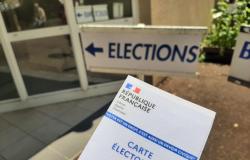As Morocco prepares to welcome waves of tourists to its sunny coasts during the 2024 summer season, the issue of the illegal occupation of beaches, as well as that of illegal parking lots, is resurfacing.
Illegal privatization of public beaches
As the thermometer rises in Morocco, the kingdom’s beaches fill with local and foreign tourists looking for sun and relaxation.
But to enjoy the coastline, some holidaymakers sometimes have to dig deep into their pockets. Access to Moroccan beaches is often chargeable.
Although Moroccan law guarantees free access to public beaches, the reality on the ground is more complex. Illegal practices, such as paying for rental of umbrellas and chairs on entire stretches of public beaches, spark controversy. Faced with this situation, the Casablanca town hall has decided to take action.
According to the Bladi.net website, the mayor of Morocco’s economic capital, Nabila Rmili, has taken a series of measures to fight against the de facto privatization of beaches.
In his sights are unscrupulous individuals who often impose exorbitant prices on summer visitors, preventing them from freely enjoying these public spaces.
The municipality of Casablanca has warned against this type of practice, reminding residents and tourists that access to the majority of the metropolis’s beaches is open and free.
In fact, 80% of the beaches of this city located on the Atlantic coast are accessible to all, without any obligation to rent deckchairs and parasols.
The Casablanca town hall thus intends to guarantee equitable access to the beaches for all. At the same time, it invites summer visitors to report to the competent authorities any attempted extortion by unauthorized persons.
These abusive practices have harmful consequences on the experience of tourists in Morocco. Vacationers, often poorly informed of their rights, fear altercations and are resigned to paying to benefit from what should be free.
Discontent grows over soaring parking prices
In addition to parasols, paid parking in car parks is also singled out. People appoint themselves car guardians and impose arbitrary prices on motorists, taking advantage of the lack of regulations and controls.
Faced with the scale of the phenomenon, the hashtag #Farsha_Moul_Jili was launched on Facebook in order to identify abuses and allow users to report areas where these practices are commonplace. For their part, consumer defense associations have called on public authorities to react quickly to put an end to these actions.





